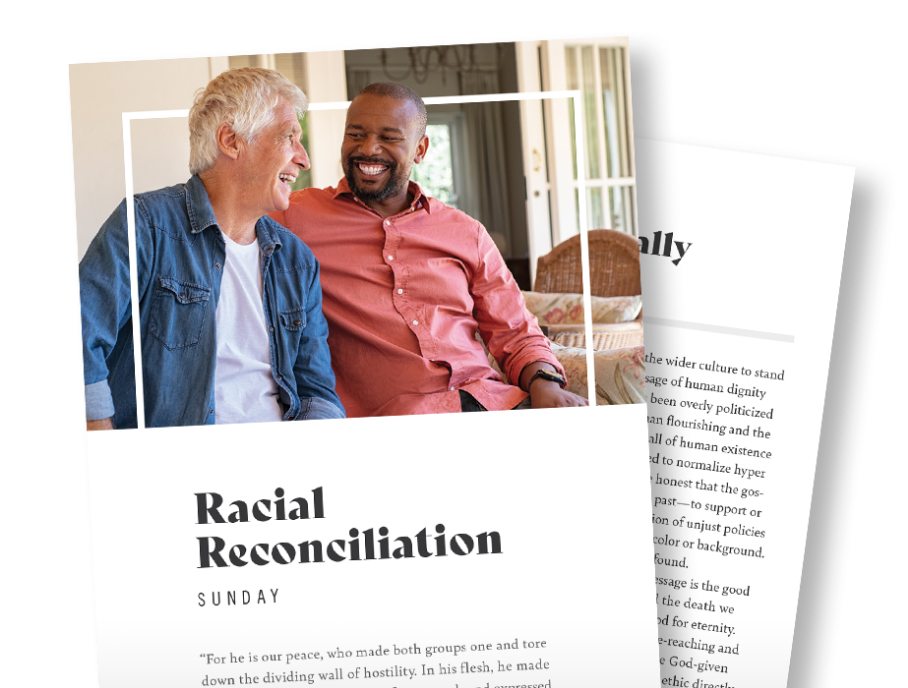Racial Unity in our Southern Baptist Churches


This conversation between ERLC President Brent Leatherwood and former Missouri Baptist Convention president, Jon Nelson, comes at a time when our convention and our nation is in need of encouragement. In this frank discussion, Jon talks about the challenges he faces as a minority pastor and the hope he has for our convention. We pray you will be encouraged by his story and his commitment to making a difference toward racial unity in the SBC.

“We’re not who we were in the past. We’re a step closer than we were, but we’re not the idea of where we want to be because there are some barriers in the way. We can get over those barriers together.”
Jon Nelson sat down with ERLC President Brent Leatherwood to talk about racial unity in the Southern Baptist Convention. It’s no secret that the SBC has a checkered past when it comes to the issue of race, but in this interview Jon shares about ways we can work together with our black and brown brothers and sisters toward a day where we truly see racial unity in the SBC.
What is racial unity? Read more about racial unity in SBC churches
Learn more about our work on these issues below or view our Racial Unity Resource Library

“It’s hard being the bridge. And the reason it’s hard being the bridge is because you get walked on. And people don’t like to get walked on.”
Key Questions about Racial Unity in SBC Churches
What is racial unity?
Racial unity does not mean that all races are viewed as one in the same, yet all races are valued as part of God’s beautiful creation. As you walk through the unfolding of God’s plan revealed in the Bible, it is clear he intentionally weaves every tribe, tongue, and nation into the tapestry of his covenant people. Through the atoning death of Jesus Christ, he reconciled humanity with God—a humanity that was once his enemy, now made his friends. In light of this, followers of Christ are called to live in unity with one another. Read more in Four Reasons Why I Am Committed to A Racially Reconciling Church.
Why is it important for local churches to pursue racial unity?
We believe pastors can and should be the catalysts for racial reconciliation in their communities. And we believe that local churches should lead the way in offering hope and healing to their neighbors and neighborhoods. In John 17, Jesus prayed for the unity of the Church. He prayed over his disciples, who had very different perspectives, and he prayed for future generations of disciples who would surely have differing perspectives. The Church should be a center for reconciliation both with God and people. The power of the gospel is on display whenever the Church functions as God’s reconciling agency. Read more in Four Reasons Why I Am Committed to A Racially Reconciling Church.
What is the Unify Project?
When it comes to racial reconciliation, pastors often don’t feel equipped to lead. Many feel a burden for the racial tensions in their community, families, and church but don’t know where to start. That’s why the Unify Project exists: to help pastors and church leaders become an influential voice in their community that brings hope and healing in Jesus’ name. Learn more about the Unify Project, and download a free plan to help you embark upon gospel-centered racial reconciliation.
How does the gospel help overcome racial divisions in the Church?
Galatians 3:28 teaches that we are one in Jesus Christ. When our identity as brothers and sisters in Christ supersedes any other identity, we can all take a posture of listening. We must be willing to put aside defensiveness in favor of listening, learning, neighborliness, and community in Christ’s name. Intentional blindness to our sin, including racism, is antithetical to truth. As the Apostle John reminds: If we claim to be without sin, we deceive ourselves and the truth is not in us (1 John 1:8). Thanks be to God in Jesus Christ that forgiveness is possible. As the very next verse proclaims: If we confess our sins, he is faithful and just and will forgive us our sins and purify us from all unrighteousness (1 John 1:9). Read more in How our church has seen the gospel overcome racial division: What commemorating the 1921 Tulsa Race Massacre taught us
How can we pray for racial unity?
- Pray against the attitudes of racism that still exist in our world and in our culture today.
- Pray against the sin of racism that still lives in some of our churches.
- Pray and repent of attitudes of racism, prejudice, or bias that God finds in our hearts.
- Pray that we would see all people as made in the image of God and worthy of respect and a voice.
- Pray for the healing which only the Spirit of God can bring.
- Pray that God would use each of us to help move us all forward along the path of racial reconciliation and harmony for the next generation to see, experience, and pass along.
Read how one church has seen God answer these prayers in How our church has seen the gospel overcome racial division: What commemorating the 1921 Tulsa Race Massacre taught us.

